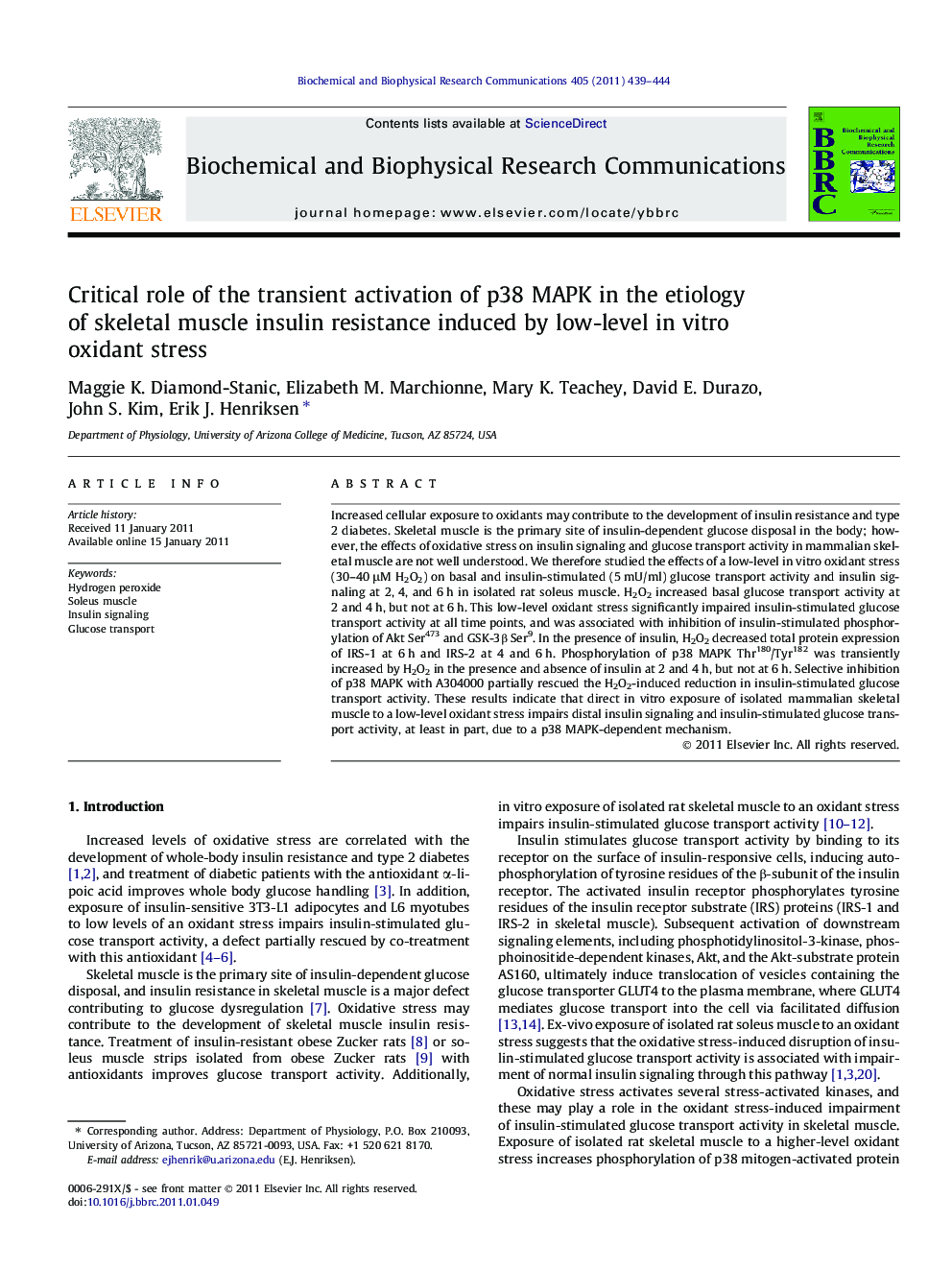| Article ID | Journal | Published Year | Pages | File Type |
|---|---|---|---|---|
| 1930683 | Biochemical and Biophysical Research Communications | 2011 | 6 Pages |
Increased cellular exposure to oxidants may contribute to the development of insulin resistance and type 2 diabetes. Skeletal muscle is the primary site of insulin-dependent glucose disposal in the body; however, the effects of oxidative stress on insulin signaling and glucose transport activity in mammalian skeletal muscle are not well understood. We therefore studied the effects of a low-level in vitro oxidant stress (30–40 μM H2O2) on basal and insulin-stimulated (5 mU/ml) glucose transport activity and insulin signaling at 2, 4, and 6 h in isolated rat soleus muscle. H2O2 increased basal glucose transport activity at 2 and 4 h, but not at 6 h. This low-level oxidant stress significantly impaired insulin-stimulated glucose transport activity at all time points, and was associated with inhibition of insulin-stimulated phosphorylation of Akt Ser473 and GSK-3β Ser9. In the presence of insulin, H2O2 decreased total protein expression of IRS-1 at 6 h and IRS-2 at 4 and 6 h. Phosphorylation of p38 MAPK Thr180/Tyr182 was transiently increased by H2O2 in the presence and absence of insulin at 2 and 4 h, but not at 6 h. Selective inhibition of p38 MAPK with A304000 partially rescued the H2O2-induced reduction in insulin-stimulated glucose transport activity. These results indicate that direct in vitro exposure of isolated mammalian skeletal muscle to a low-level oxidant stress impairs distal insulin signaling and insulin-stimulated glucose transport activity, at least in part, due to a p38 MAPK-dependent mechanism.
Research highlights► Low-level oxidant stress in vitro induces insulin resistance in rat skeletal muscle. ► This oxidant stress does not activate basal Akt phosphorylation or glucose transport. ► This low-level oxidant stress also induces loss of IRS-1 and IRS-2. ► Transient activation of p38 MAPK is critical for oxidant-induced insulin resistance.
